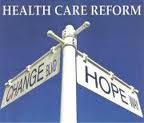![Healthcare Fallout: Obama’s Growing List of Coalitions]()
by | Jul 6, 2012
 The bedrock of winning elections at every major level of politics is building coalitions of supporters for whom you can count on to head to the polls and cast a vote for you. Especially in a country as large and non-monolithic as ours, coalition building on some level is a requirement for victory and often explains why politicians are so willing to speak often, but say very little.
The bedrock of winning elections at every major level of politics is building coalitions of supporters for whom you can count on to head to the polls and cast a vote for you. Especially in a country as large and non-monolithic as ours, coalition building on some level is a requirement for victory and often explains why politicians are so willing to speak often, but say very little.
A close look at President Obama’s effort in this area reveals that he has elevated this process to an art form—but far from art, what he has created is an ugly picture beneficial to himself, but terrible for America.
While the Supreme Court’s ruling on Thursday to uphold the Affordable Care Act certainly carries the negatives of energizing Republicans and leaving him to defend a tax increase, it is foolish not to acknowledge the potential political windfall that he has unleashed. He has managed to cement a new member in his group of coalitions—a group with millions of potential voters.
As we have discussed here before, for decades the Democrat party in America has used the social safety net and the laws of this country to build a formidable coalition of voters. The newest members are the up to 33 million people who will now be guaranteed health insurance by virtue of being a breathing American. For the first time in history an American president will be able to say ‘if you vote Democrat you will have (possibly for free) health insurance, and if you vote Republican you will not’, a potent motivator.
The addition of the health care voter coalition can now be added to the two others that he has bolstered recently, in what may be the most cynical and politically motivated two months in American presidential history.
First it was going on record with the news that he had “evolved†on the issue and now supports gay marriage. This was followed by a surprise move to essentially remove the possibility of deportation for young illegal aliens. While the gay community is relatively small, bolstering his claim to the Hispanic vote was a huge benefit to his Electoral College math. Early next week, we will have a story detailing how the health care law really has more to do with sealing up the Hispanic vote than anything else.
Besides the Latino vote, Obamacare allows the Democrat Party to further stack the deck against Republicans as they try to implement the Social Security, Medicare, and Medicaid reforms in the Paul Ryan budget over the next few years. Top Democrat strategists have to be secretly celebrating, knowing full well that the already difficult politics of reforming these programs just got down right suicidal now that 16 million more people have been added to the rolls.
Moving Forward
The Presidents relentless coalition building will continue from now until November. With the economy not in position to rebound at all, and the two major initiatives of his Presidency either unpopular (health care) or ineffectual (the stimulus), he really has no other choice. I am predicting that sometime in the next few months he will make a shocking public policy jester to the unions, who remain the last sizeable group he has not tried to directly entice.
Though it goes against the grain, at this point I would consider advising Mitt Romney to not moderate on illegal immigration and stay as far right on this issue as he was during the presidential primary. The reasons for this are several.
First, it is the law and the right thing to do—we simply cannot be the only nation on earth that doesn’t enforce its borders. Though many are quick to forget it, this is a message that resonates with nearly all Republicans, and millions of Independents. Second, there is simply no way for Republicans to match what Democrats can offer. While Republicans and Latinos have large overlaps in religious beliefs and family values, Democrats are in essence offering citizenship, free or nearly free health care, and an ever-expanding web of financial assistance that delivers from birth to death.
It may be high time to face the facts—winning over the Hispanic community is not going to happen anytime soon, and the more Republicans bend and soften on these issues the more they enrage fellow Republicans and appear hypocritical to Independents.
The irony here is that many of the Republicans who have been hesitant to support Mitt Romney, largely due to their belief that he tries to be all things to all people, are the same people that are urging him to cow tow to the Hispanic vote and moderate his position on illegal immigration.
There are still tens of millions of Americans who still believe strongly that we are a nation of laws. Should Mitt Romney take a stand on this issue and add this too often ignored group to his list of coalitions, it may end up being a net positive in November.
The post Healthcare Fallout: Obama’s Growing List of Coalitions appeared first on The Conservative Reader.



![Healthcare Fallout: Obama’s Growing List of Coalitions]()
by | Jul 1, 2012
 In a Representative Democracy, voting for a particular political candidate or philosophy is the most impactful way a citizenry can change their country. While the “who†a person votes for is what actively shapes a Republic, digging into the motivation behind that vote is far more telling, and ultimately reveals far more about ourselves and where we are heading.
In a Representative Democracy, voting for a particular political candidate or philosophy is the most impactful way a citizenry can change their country. While the “who†a person votes for is what actively shapes a Republic, digging into the motivation behind that vote is far more telling, and ultimately reveals far more about ourselves and where we are heading.
As government involvement in Americans day-to-day lives has expanded, the possible motivating factors at play driving each citizens vote has also expanded—and the effects of this have been devastating. Boiled down to the most basic level, there are two motivations that influence a political vote—you can vote in what you believe is in the best interest of the country, or you can vote in your own personal interest.
In past generations, before the American government was so deeply involved in the giving business, the vast majority of our population largely had only the best interest of the country as a whole to consider. Unfortunately, today nearly half of our citizens have the legitimate option of choosing to vote for their own personal gain at the ballot box.
Not Your Grandfather’s Democratic Party
Though it sounds crass, the modern day Democratic Party has evolved into a selfish group of constituencies that have something to gain in voting for Democrats and against Republicans. While the most obvious entries on the list involve financial assistance from the economic safety net—unending unemployment benefits, housing subsidies, food stamps, Title 19, etc.—in recent years this list has grown to include several other things.
Hispanic Americans can now vote Democrat to ultimately allow their friends and relatives who are here illegally become citizens. Gay Americans can now vote Democrat to gain the right to marry and the economic advantages that come with it. Union members can vote Democrat in order to receive more favorably negotiated salaries and benefits at the bargaining table. Those Americans who, for whatever reason, did not have health insurance can now vote a straight Democratic ticket in hopes of retaining it, since they have now been given it.
In large part this massive constituency of selfishly driven voters explains what the mind-boggling national debt has become so out of control. Far more than any other issue, not running annual deficits and paying down the national debt are two things that are in the best interest of the country—and not necessarily in the best interest of each individual American.  The polling data bears this out showing that, even with the national debt north of $16 trillion, only 66% of Democrats cite lowering this number as a major priority.
Contrarians to this line of thinking will make the charge that Republicans vote in their own best interest by voting for politicians who believe in lowering their taxes. As usual this charge leaves out one unavoidable fact—that the money taken by the government for taxes is earned, and it belonged to the individual in the first place. Put simply, voting to keep more of your own money and not giving it away to a largely wasteful entitlement state (especially one with a progressive tax code) is not a greed driven motivation—rather it is a logical one.
What It Means
The selfishly motivated voter is the single biggest reason why European style democracies are self-feeding, self-defeating, unworkable, and unsustainable. Yet in spite of the real-time evidence playing out across the Atlantic, a near majority of Americans refuse to change course. Increasingly, it is hard not to assume a major reason why American voters are unwilling to do so is that they would be putting themselves out to do so.
The only way to break this cycle is for the Democrat Party to shift away from promising things to an ever-widening group of voters. The sad truth though is that they have built a political base only able to stand upright through some combination of deficit spending, large tax increases, and social pandering. They have become so politically dependent on various sub-groups that making decisions for the economic good of the country, even if they wanted to, would quickly result in them paying a huge political price and losing elections.
Whenever Americans choose to overlook our national interest and instead vote in favor of their own, neither is well served.
The post In the Age of the Selfish Voter appeared first on The Conservative Reader.




by | Jun 29, 2012
 Following the Supreme Court ruling upholding The Affordable Care Act, the financial fallout for the American people must be re-highlighted. We will have political analysis in the coming days, but for now here are the facts regarding the tax implications of this law
Following the Supreme Court ruling upholding The Affordable Care Act, the financial fallout for the American people must be re-highlighted. We will have political analysis in the coming days, but for now here are the facts regarding the tax implications of this law
Comprehensive List of Tax Hikes in Obamacare
Individual Mandate Excise Tax(Jan 2014): Starting in 2014, anyone not buying “qualifying†health insurance must pay an income surtax according to the higher of the following
|
1 Adult |
2 Adults |
3+ Adults |
| 2014 |
1% AGI/$95 |
1% AGI/$190 |
1% AGI/$285 |
| 2015 |
2% AGI/$325 |
2% AGI/$650 |
2% AGI/$975 |
| 2016 + |
2.5% AGI/$695 |
2.5% AGI/$1390 |
2.5% AGI/$2085 |
Exemptions for religious objectors, undocumented immigrants, prisoners, those earning less than the poverty line, members of Indian tribes, and hardship cases (determined by HHS)
Employer Mandate Tax(Jan 2014): If an employer does not offer health coverage, and at least one employee qualifies for a health tax credit, the employer must pay an additional non-deductible tax of $2000 for all full-time employees. This provision applies to all employers with 50 or more employees. If any employee actually receives coverage through the exchange, the penalty on the employer for that employee rises to $3000. If the employer requires a waiting period to enroll in coverage of 30-60 days, there is a $400 tax per employee ($600 if the period is 60 days or longer).
Combined score of individual and employer mandate tax penalty: $65 billion/10 years
Surtax on Investment Income ($123 billion/Jan. 2013): This increase involves the creation of a new, 3.8 percent surtax on investment income earned in households making at least $250,000 ($200,000 single). This would result in the following top tax rates on investment income
|
Capital Gains |
Dividends |
Other* |
| 2010-2012 |
15% |
15% |
35% |
| 2013+ (current law) |
23.8% |
43.4% |
43.4% |
| 2013+ (Obama budget) |
23.8% |
23.8% |
43.4% |
*Other unearned income includes (for surtax purposes) gross income from interest, annuities, royalties, net rents, and passive income in partnerships and Subchapter-S corporations. It does not include municipal bond interest or life insurance proceeds, since those do not add to gross income. It does not include active trade or business income, fair market value sales of ownership in pass-through entities, or distributions from retirement plans. The 3.8% surtax does not apply to non-resident aliens.
Excise Tax on Comprehensive Health Insurance Plans($32 bil/Jan 2018): Starting in 2018, new 40 percent excise tax on “Cadillac†health insurance plans ($10,200 single/$27,500 family). For early retirees and high-risk professions exists a higher threshold ($11,500 single/$29,450 family). CPI +1 percentage point indexed.
Hike in Medicare Payroll Tax($86.8 bil/Jan 2013): Current law and changes:
|
First $200,000 ($250,000 Married) Employer/Employee |
All Remaining Wages Employer/Employee |
| Current Law |
1.45%/1.45% 2.9% self-employed |
1.45%/1.45% 2.9% self-employed |
| Obamacare Tax Hike |
1.45%/1.45% 2.9% self-employed |
1.45%/2.35% 3.8% self-employed |
Medicine Cabinet Tax($5 bil/Jan 2011): Americans no longer able to use health savings account (HSA), flexible spending account (FSA), or health reimbursement (HRA) pre-tax dollars to purchase non-prescription, over-the-counter medicines (except insulin)
HSA Withdrawal Tax Hike($1.4 bil/Jan 2011): Increases additional tax on non-medical early withdrawals from an HSA from 10 to 20 percent, disadvantaging them relative to IRAs and other tax-advantaged accounts, which remain at 10 percent.
Flexible Spending Account Cap – aka“Special Needs Kids Taxâ€($13 bil/Jan 2013): Imposes cap of $2500 (Indexed to inflation after 2013) on FSAs (now unlimited). . There is one group of FSA owners for whom this new cap will be particularly cruel and onerous: parents of special needs children. There are thousands of families with special needs children in the United States, and many of them use FSAs to pay for special needs education. Tuition rates at one leading school that teaches special needs children in Washington, D.C. (National Child Research Center) can easily exceed $14,000 per year. Under tax rules, FSA dollars can be used to pay for this type of special needs education.
Tax on Medical Device Manufacturers($20 bil/Jan 2013): Medical device manufacturers employ 360,000 people in 6000 plants across the country. This law imposes a new 2.3% excise tax. Exemptions include items retailing for less than $100.
Raise “Haircut” for Medical Itemized Deduction from 7.5% to 10% of AGI($15.2 bil/Jan 2013): Currently, those facing high medical expenses are allowed a deduction for medical expenses to the extent that those expenses exceed 7.5 percent of adjusted gross income (AGI). The new provision imposes a threshold of 10 percent of AGI; it is waived for 65+ taxpayers in 2013-2016 only.
Tax on Indoor Tanning Services($2.7 billion/July 1, 2010): New 10 percent excise tax on Americans using indoor tanning salons
Elimination of tax deduction for employer-provided retirement Rx drug coverage in coordination with Medicare Part D($4.5 bil/Jan 2013)
Blue Cross/Blue Shield Tax Hike($0.4 bil/Jan 2010): The special tax deduction in current law for Blue Cross/Blue Shield companies would only be allowed if 85 percent or more of premium revenues are spent on clinical services
Excise Tax on Charitable Hospitals(Min$/immediate): $50,000 per hospital if they fail to meet new “community health assessment needs,” “financial assistance,” and “billing and collection” rules set by HHS
Tax on Innovator Drug Companies($22.2 bil/Jan 2010): $2.3 billion annual tax on the industry imposed relative to share of sales made that year.
Tax on Health Insurers($60.1 bil/Jan 2014): Annual tax on the industry imposed relative to health insurance premiums collected that year. The stipulation phases in gradually until 2018, and is fully-imposed on firms with $50 million in profits.
$500,000 Annual Executive Compensation Limit for Health Insurance Executives($0.6 bil/Jan 2013)
Employer Reporting of Insurance on W-2(Min$/Jan 2011): Preamble to taxing health benefits on individual tax returns.
Corporate 1099-MISC Information Reporting($17.1 bil/Jan 2012): Requires businesses to send 1099-MISC information tax forms to corporations (currently limited to individuals), a huge compliance burden for small employers
“Black liquor†tax hike(Tax hike of $23.6 billion). This is a tax increase on a type of bio-fuel.
Codification of the “economic substance doctrineâ€(Tax hike of $4.5 billion). This provision allows the IRS to disallow completely-legal tax deductions and other legal tax-minimizing plans just because the IRS deems that the action lacks “substance†and is merely intended to reduce taxes owed.

by | Jun 18, 2012
 Preparing for the Supreme Court Fallout
Preparing for the Supreme Court Fallout
With the Supreme Court ruling on the Affordable Health Care Act expected within the next two weeks, both sides of the isle are busy making contingency plans. Two things of specific note here are:
- This decision will directly affect the next session of the Iowa Legislature. As of this moment the General Assembly has delayed setting up the insurance exchanges that are required in the health care law. If the law is upheld there will be mounting pressure on Iowa Republicans to begin this process quickly, and they will be forced to decide to either design the exchanges in order to have a say in how they are built, or take no action and risk having Iowa being governed by the exchange that the Federal government constructs.
- The decision’s details will have a great impact on our health care system as it pertains to the expansion of Medicaid. The working theory is that, as long as the whole law is not thrown out, the expansion of Medicaid that would put at least 16 million new people on the Medicaid roles would remain in effect. In this scenario action by Congress would be required to reverse this new reality. This highlights the importance of Republicans winning both the Senate and the Oval Office in November, regardless of the Supreme Court ruling.
    New York Times: With Justices Set to Rule on Health Law, Two Parties Strategize
An Early Analysis of Iowa in November
Take a look at the infrastructure the Obama and Romney campaigns are building in Iowa, and some of the factors at play in a crucial swing state.
Among some of the interesting things dealt with here are how having Steve King and the judicial retention elections on the November ballot will affect the Presidential race.
Slate: The Psychological State of IowaÂ
A Disturbing Sign of the Times
One wonders how long our Country can prosper while producing citizens capable of the following behavior–and having a social safety net that makes it possible.
Unbelievable and Despicable:Â News Channel 3 (Memphis): Memphis Man Owes Child Support to 15 Women
Even More Unbelievable and Despicable:Â News Channel 3 (Memphis):Â Tenn. Man “Fathers” 30 Kids But Can’t Support AnyÂ

by | Oct 25, 2011
 This is the second installment of a two-part interview, to read part one click here.
This is the second installment of a two-part interview, to read part one click here.
Education
Governor Branstad’s legacy-minded education reform proposal has struggled to draw support since its release on October 3rd, and you can count Mr. Landon as one of those lacking in enthusiasm.
A core tenet of Landon’s philosophy is local control. The benefit he sees in applying this principle to education is that the parents of each child, and the teachers in the actual class room, will have their voices better heard and their concerns more directly dealt with,
“My first reaction (to the governor’s plan) is that it drives us towards more state control and more mandates on levels of performance. I think that we are going to have to reform the system, but I think that instead of less local control we need to focus on more local control. I think we need to make sure that the families, the school teachers, and the administrators all have their say on how this should be done. I really believe that parents and school teachers, the people who are in that sector, know the best for their kidsâ€.
Health Care
The Democrats failure last session to construct Iowa’s insurance exchange program in accordance with Obama Care means that a nasty, brutal fight awaits next year. By all accounts this will be one of the three most high-profile issues debated by the Iowa Legislature in 2012, and one that ultimately drew fellow candidate Stacey Rogers (R-Ankeny) into the race. Landon, for one, would have voted no last year on SF 404 and sounds ready to engage in the fight,
“What would guide me is local control. The rights of District 37 residents and the rights of Iowans have to come first. Anything that’s done has to be for their benefit and their economic interests. And frankly, I view Obama Care as unconstitutional from the get-go. I am not in favor of taking care of this through the government because they (the people) will not be taken care of the way they should be.â€
On Illegal Immigration
“I am a proponent of legal immigration. It is probably not that big of an issue in this particular district, but there are areas in Iowa where it is. As a state issue I would say that the Federal government, like in so many other things, has failed. I am against the taxpayer having to pay for the upkeep of people who have come here illegally.â€
Barring an unexpected Federal resolution to this problem Landon indicated a willingness to possibly engage at the state level, “If the Federal government won’t do it and they are going to continue to let the border be porous, from the standpoint of public safety and who is going to protect the taxpayer, there has to be a process that protects you the citizen.â€
On Varnum (Gay Marriage)
“That should have been decided by the voters. That is a monumental shift in society and voters need to have their say. If a constitutional amendment is the only way for voters to get their voice heard on it, then we need to do it.â€
On The Tea Party
In response to a question seeking his thoughts on the Tea Party and if he would consider himself a “Tea Party-ish†candidate, he answered, “I haven’t found anything in their platform that offends me or that I take issue with. I am for individual rights. I think people can make their own decisions and government would be well advised to pay attention to that. Having said that, I am part of the process and a consensus builder, I just don’t think you can go out there as a maverick and get a whole lot done. What I want is for Lincoln and Douglas townships to flourish and for Ankeny to flourish. The only way I can do that is by being an effective voice, and the only way to be an effective voice is to be a part of the process.â€
Race Analysis and Summary
The contest for the Republican nomination in House District 37 will be of elevated importance as the probability is high that the nominee will ultimately be the Representative. Due to the fact that the district has a 2,400 advantage in registered Republicans over registered Democrats in what is already shaping up to be a Republican wave year, it is likely that the nominee may run un-opposed. Even more likely is that if the Democrats do choose to field a candidate they will not bother to recruit a top-notch challenger or commit substantial resources to the effort.
In what could end up being a crowded field of Republicans, John Landon is a serious contender who will be in it for the long haul. He appears both fired up for the race and ready to put in the time and work that will be required to win the seat. The major pillars that his candidacy will be built on are: less intrusive government, more local control, simplicity in legislative solutions, sensitivity to Iowa’s taxpayers, and a vehement opposition to unfunded mandates.
In particular, emphasizing that the failure to make budget cuts leads to higher taxes and a crusade against unfunded mandates could garner wide-spread appeal in District 37.
As his background suggests he is clearly positioned in the race as the “business candidate.†While often times the “business candidate†moniker is attached to folks who have had professional success, it’s worth noting that the business-like way Mr. Landon breaks down large issues as he thinks through them suggests that he would translate these skills to governance should he be elected.
Though we are early in the process, as Republicans begin to look at the field they will find much to like about John Landon as a person and as a candidate.
 The bedrock of winning elections at every major level of politics is building coalitions of supporters for whom you can count on to head to the polls and cast a vote for you. Especially in a country as large and non-monolithic as ours, coalition building on some level is a requirement for victory and often explains why politicians are so willing to speak often, but say very little.
The bedrock of winning elections at every major level of politics is building coalitions of supporters for whom you can count on to head to the polls and cast a vote for you. Especially in a country as large and non-monolithic as ours, coalition building on some level is a requirement for victory and often explains why politicians are so willing to speak often, but say very little.





